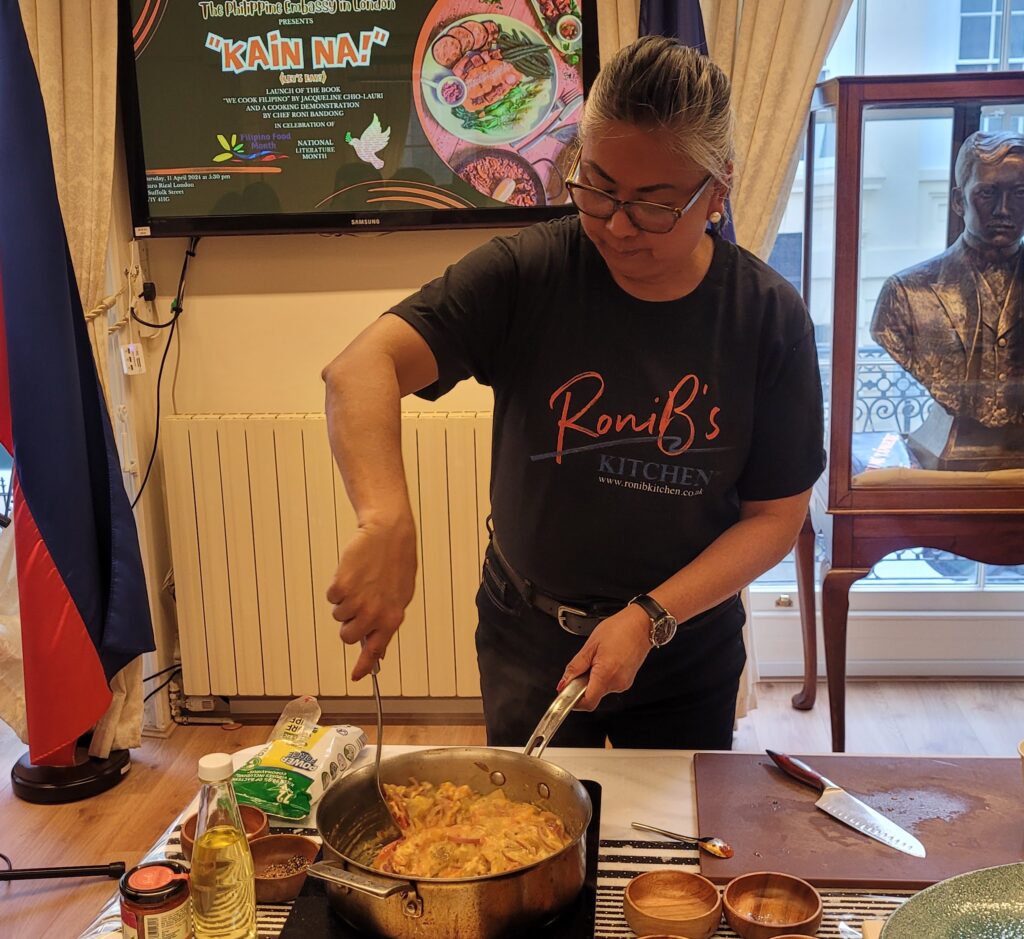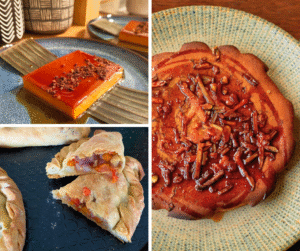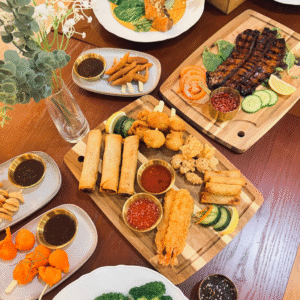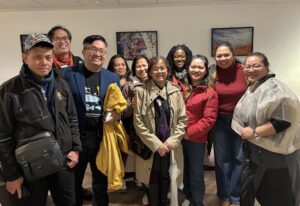By Naomi Edge
April is Filipino Food Month, a way for Filipinos across the world to celebrate food which is central to our culture. This year’s theme is “Kalutong Filipino, Lakas ng Kabataang Makabago.”
The Philippine Embassy in London recently organised “Kain Na” (Let’s Eat), where speakers came to share their passion for food and of course, to share a meal.
Food Beginnings
Author Jacqueline Chio-Lauri talked about her latest cookbook “We Cook Filipino.” Her book starts with how her culture influenced her recipes and how she came up with them, with the help of fellow Filipinos.
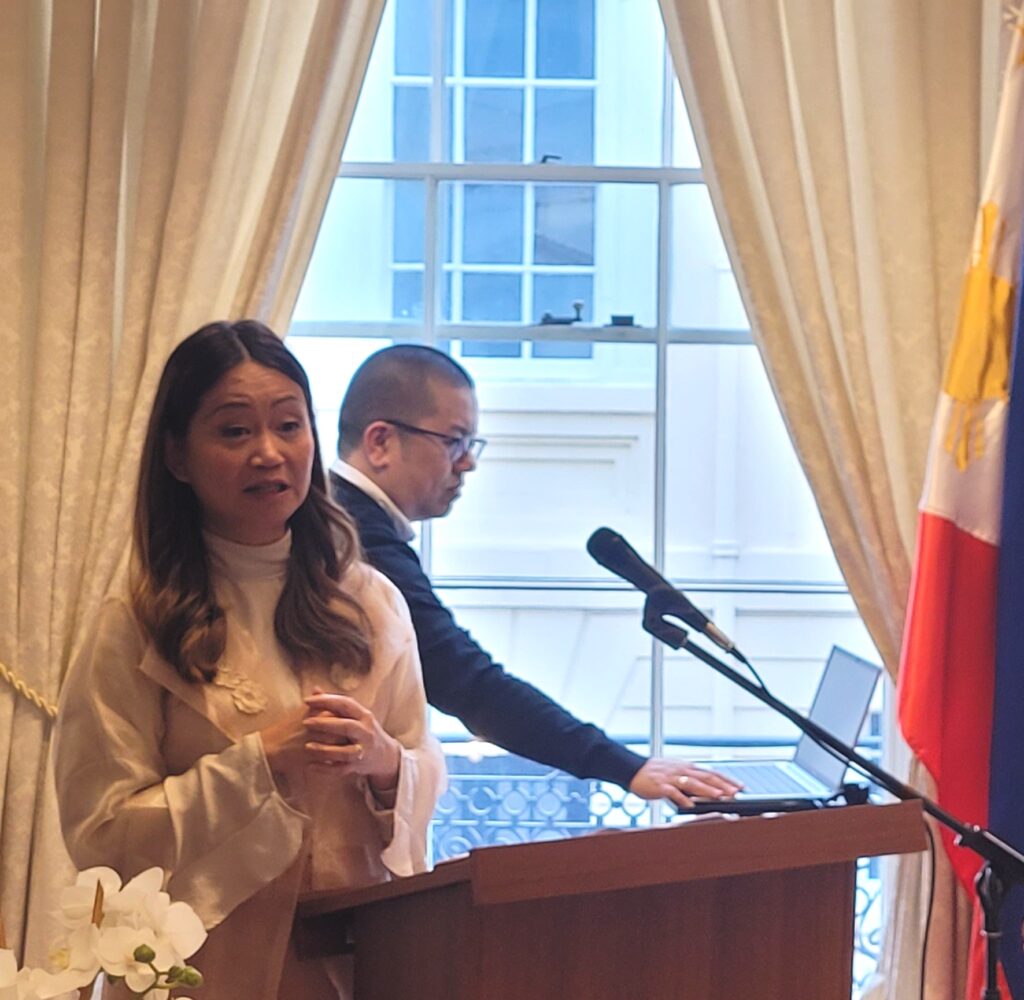
Jacqueline shared how Filipino food can be made healthily, and has an important section about heart-smart foods. There’s a common conception and concern that Filipino food is rich and focused on meat, but with her variations, she hopes to change minds. She says that in fact, Filipino food staples, including the viral social media sensation, ube and banana, are good for your heart. With simple seasoning tips, her recipes show you how to enjoy your mother’s recipes without sacrificing your health.
“There’s so many influences that have shaped Filipino food. In the south, there’s spicy dishes that originate from Malaysia, but I think the bigger colonisers, like Spain and the US, have had a larger influence on the taste of our food.”
Tastes and smells excite our senses
Next it was time to get our mouths watering with a live food demonstration from renowned Chef Roni Bandong. An accomplished chef who has recently appeared on Channel 4’s “Aldi’s Next Big Thing” programme, she has developed a full range of popular Filipino sauces. One of her products received a 3 gold star award, the highest commendation of food awards, which only 2% of applicants receive.
Under the pressure of a live audience, she cooked up a delectable dish of poqui poqui, a breakfast dish from the Ilocos region in the northern Philippines which uses chopped aubergine. Of course, she added one of her jarred ingredients, chili oil paste, to add a little spice.
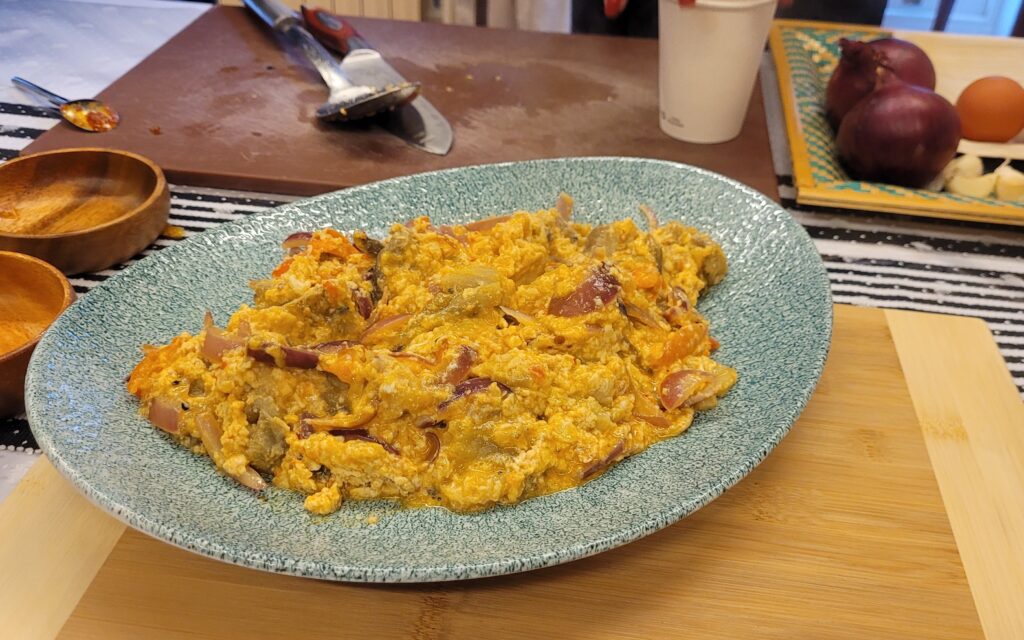
As she cooked, she talked about how when she started out, she knew it was going to be hard work.
“When I first started to bring Filipino food to the UK, I was discouraged as no one knew or cared about it then. I knew it was going to be a battle to get there. The demand for Filipino food is more recent”.
As the first person to bring banana ketchup to the UK, her jars and sauces are a real testament to her success. Starting out in 2012 at supper clubs and pop-ups making only 5L batches, she’s now up to over 75L batches and growing.
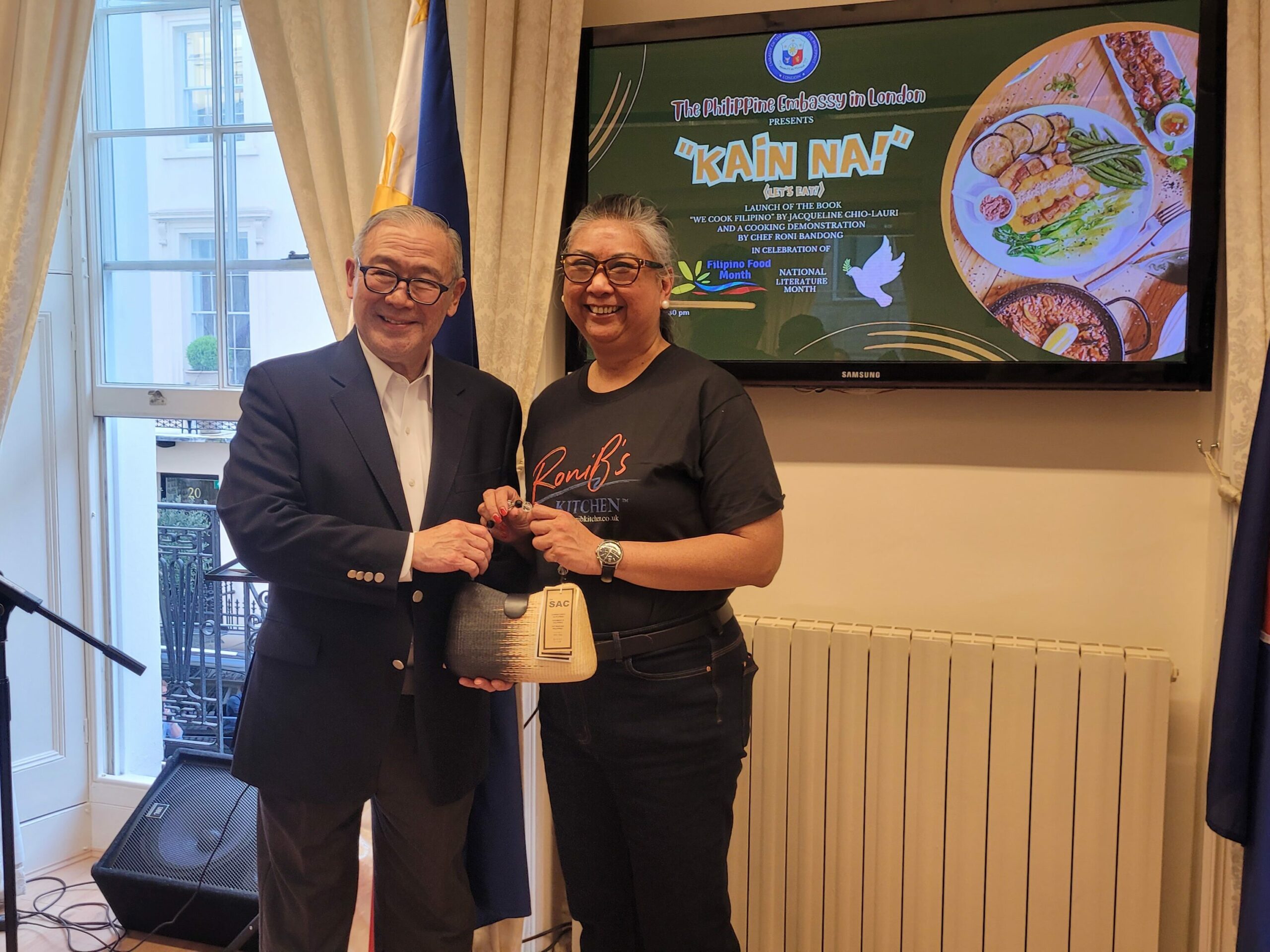
“I want to thank you for your banana ketchup, my English in-laws love it! My secret is that I add it to British dishes, like cottage pie and I get so many compliments,” said Stella Sait, a Filipino language teacher for ILAW.
Which goes to show, just as other cultures have influenced Filipino food, our staples can bring new life to British food. Food has always been a good way to share and bring your culture to the table, a practice which has been made easier by Chef Roni’s ketchup and jarred sauces.
Rich in food and culture
Catering for the event was provided by Filipino food court staple, Spoon and Rice. They showcased a variety of dishes including chicken adobo burgers, jackfruit turon and buko (coconut), and coconut tapioca pudding.
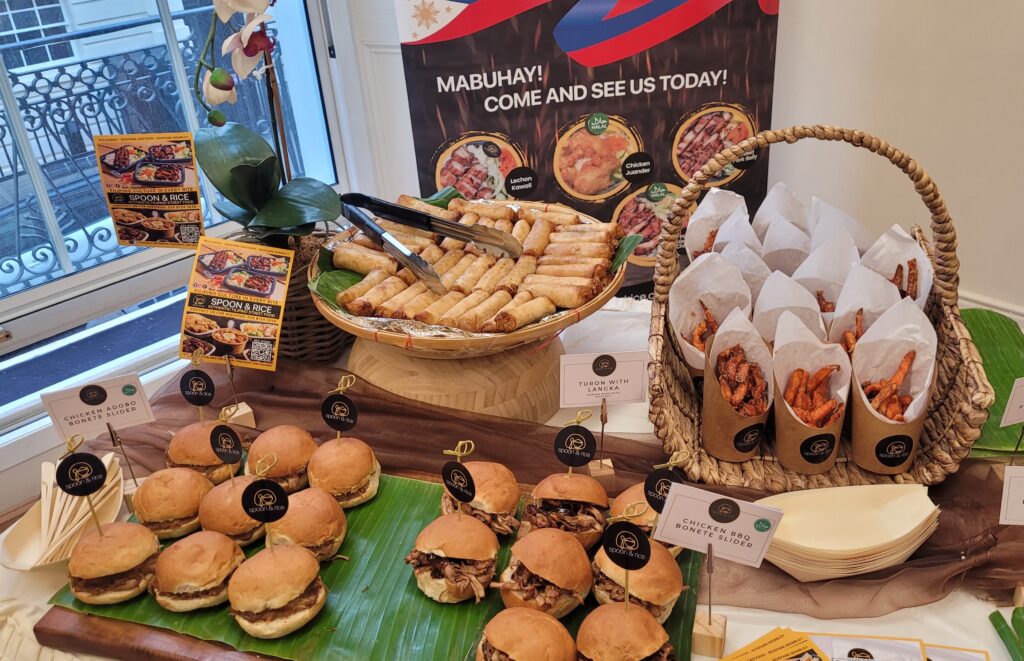
“Embracing culture is amazing. I’ve never tried this food before, but, love it! You have rich food, which reminds me of Nigerian culture and richness of the food is similar. I’m not normally a dessert person, but I loved (the buko tapioca), because it was not too sweet,” said Taiwo Meghoma, fashion director for “Weaving International Fashion,” a charity event taking place in May.
The event concluded with a quiz to test our listening skills and knowledge, of course the winners received food-themed prizes, including a box of Sky Flakes. One of the winners included Joe Hammond, a half-Filipino Californian, who reflected on why he thought Filipino restaurants were better in the UK.
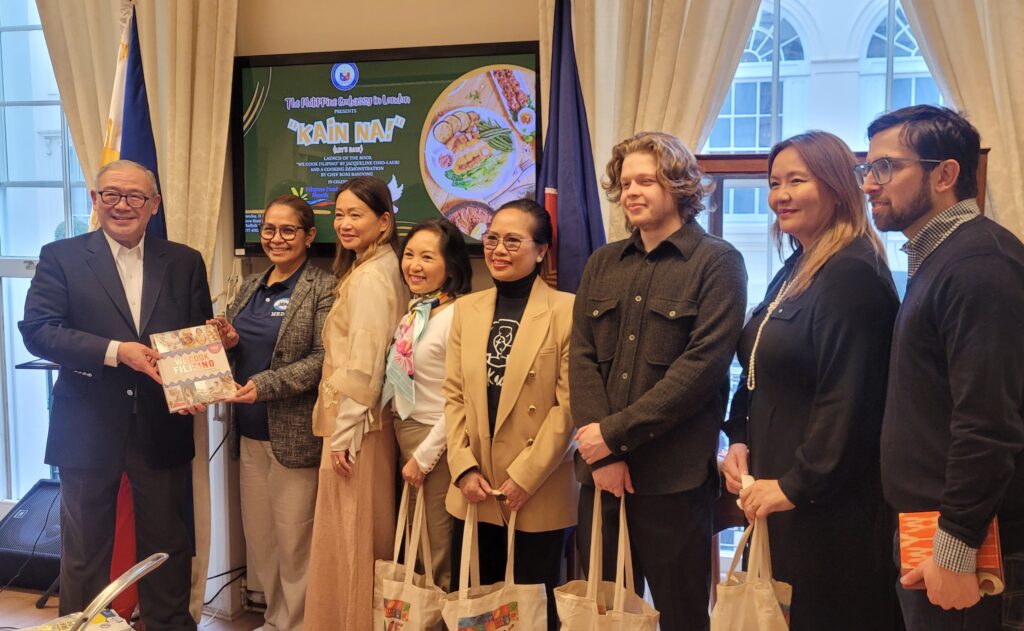
“I think what makes the UK scene unique is that Filipino restaurants have to be inclusive spaces — they can thrive on salty adobos aimed at expats or a few vaguely ube-colored desserts. The event certainly showcased the diversity of Filipino cooking in the UK and elsewhere.”
“Kain na! (Let’s eat!)” is a phrase that’s heard in almost every meal in Filipino households, a dinner bell to call family members to come together and share not only a hearty meal but a taste of our heritage. With the help of food advocates like Jacqueline Chjijo-Lauri and Roni Bandong, Filipino food has found its place in the cultural smorgasbord of British food establishments and stores. Events like this remind us that bringing our friends and communities together to share a meal and a recipe or two, is what will help strengthen connections and keep Filipino culture alive in Britain for the next generation. We’ve seen it happen with ube’s (purple yam) rise to social media success. I hope this trending popularity carries on as younger Filipinos share their meals on social media, opening the eyes, and mouths of the UK, to continue embracing Filipino food and culture.
About the author

Working as Marketing Executive for New Scientist Live, Naomi is a Filipino-British who is passionate about design and writing. She has previously worked with the British Council, Birmingham Arts Council and Wilderness Festival on a variety of fundraising and awareness events, including the “Birmingham Weekender” and “The Janus Project.” You can follow her on Twitter @nomderland

